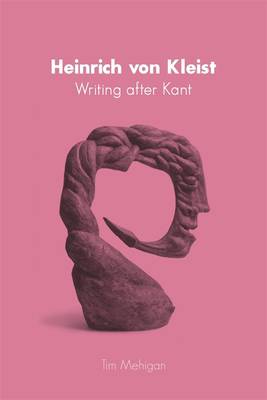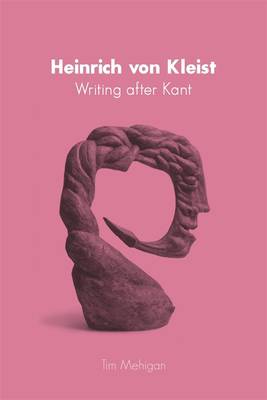
- Afhalen na 1 uur in een winkel met voorraad
- Gratis thuislevering in België vanaf € 30
- Ruim aanbod met 7 miljoen producten
- Afhalen na 1 uur in een winkel met voorraad
- Gratis thuislevering in België vanaf € 30
- Ruim aanbod met 7 miljoen producten
Zoeken
Omschrijving
The question of Heinrich von Kleist's reading and reception of Kant's philosophy has never been satisfactorily answered. The present study aims to reassess this question, particularly in the light of Kant's rising importance for the humanities today. It argues not only that Kleist was influenced by Kant, but also that he may be understood as a Kantian, albeit an unorthodox one. The volume integrates material previously published by the author in the form of articles and essays, now updated, with new chapters to form a greater whole. What results is a coherent set of approaches that illuminates the question of Kleist's Kantianism from different points of view. Kleist is thereby understood not only as a writer but also as a thinker -- one whose seriousness of purpose and clarity of design compares with that of other early expositors of Kant's thought such as Reinhold and Fichte. Through the locutions and idioms of fiction and the essay, Kleist becomes visible for the first time as an original contributor to the tradition of post-Kantian ideas. TIM MEHIGAN is Professorial Chair of German in the Department of Languages and Cultures at the University of Otago, New Zealand, and Honorary Professor in the School of Languages and Comparative Cultural Studies at the University of Queensland, Australia.
Specificaties
Betrokkenen
- Auteur(s):
- Uitgeverij:
Inhoud
- Aantal bladzijden:
- 244
- Taal:
- Engels
- Reeks:
- Reeksnummer:
- nr. 109
Eigenschappen
- Productcode (EAN):
- 9781571135186
- Verschijningsdatum:
- 1/12/2011
- Uitvoering:
- Hardcover
- Formaat:
- Genaaid
- Afmetingen:
- 152 mm x 229 mm
- Gewicht:
- 530 g

Alleen bij Standaard Boekhandel
+ 354 punten op je klantenkaart van Standaard Boekhandel
Beoordelingen
We publiceren alleen reviews die voldoen aan de voorwaarden voor reviews. Bekijk onze voorwaarden voor reviews.








